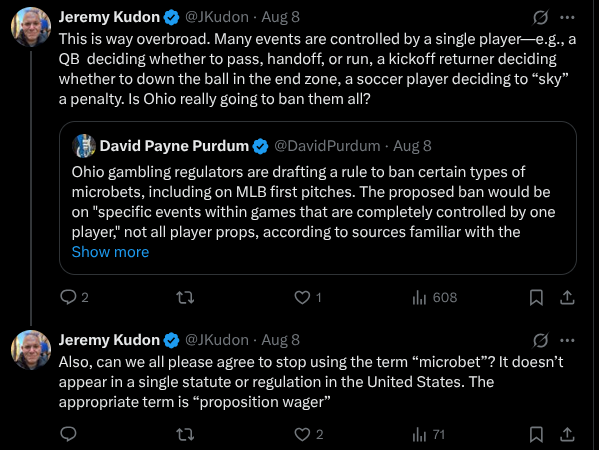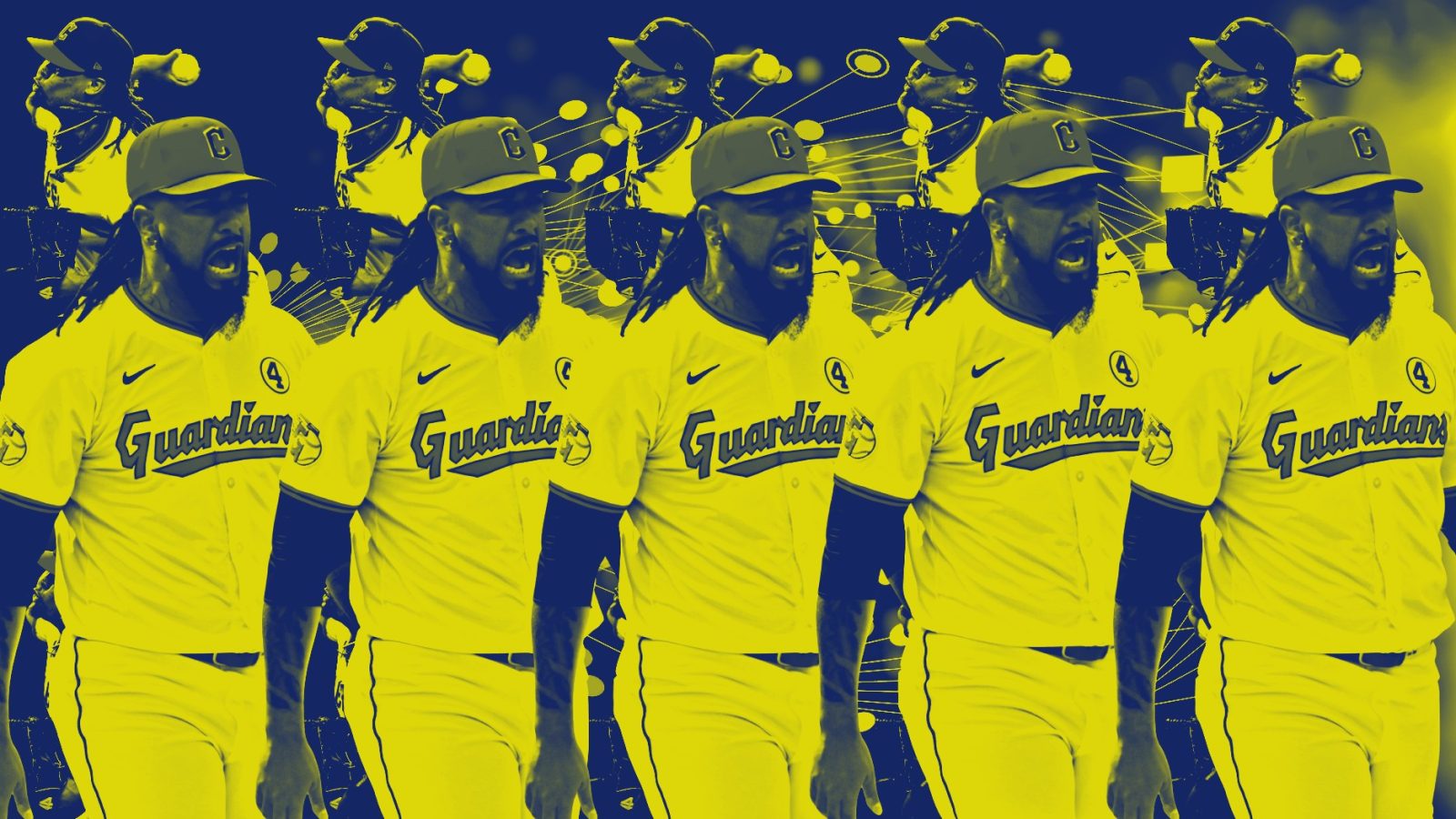The Ohio Casino Control Commission (OCCC) is gathering a list of so-called microbets — granular wagers placed on real-time outcomes — that could be barred from sportsbooks in the state.
The story was originally reported by ESPN Friday, and confirmed by InGame. An eventual list of recommendations would need approval from the OCCC and state legislators to be officially banned.
An OCCC spokes person told InGame: “Given Governor DeWine’s request, the Commission staff, performing its basic due diligence, is simply putting pen to paper to see what such a rule would look like. This is simply a draft for internal review. No next steps have been determined. It is important to remember that the Commission commenced its investigation into the unusual wagering activity surrounding two Cleveland Guardians pitchers upon notification and that investigation is ongoing.”
Low-dollar bet caps on microbets prevent them from being a highly lucrative type of wager. But they represent one of the easy types of bets to manipulate, and one in which a player may not necessarily damage their team’s chances of winning. Cleveland Guardians pitchers Luis L. Ortiz and Emmanuel Clase are each on paid administrative leave through Aug. 31 as Major League Baseball (MLB) investigates allegations they threw uncompetitive pitches to cash “first-pitch” microbets.
An industry source told InGame that the “pitch speed” market offered at some sportsbooks was particularly vulnerable given the analytics available to players. Pitchers, in theory, would be able to manipulate that bet simply by throwing the type of pitch needed at maximum effort, knowing its natural velocity.
Industry resists, but are microbets worth it?
The American Gaming Association has protested the notion of outright elimination of the bets, partly because it contends it will send the already-inclined unscrupulous player to the black market. A source told ESPN, however, that many offshore sportsbooks eschew microbets for integrity reasons.
Ultimately, microbetting may now not be worth the bad press and regulatory pressure for the legal gambling industry in the United States. Microbets comprise a tiny fraction of the sports bets placed domestically, partly because bettors can’t react fast enough in the 12 to 18 seconds a market is open. Also, the lag between television broadcasts and the much faster data feeds used by sportsbooks apps can be as much as a minute, forcing bettors/would-be TV viewers to focus on one or the other.
“It definitely hasn’t lived up to its promise of two to three years ago as what the next generation of betting was going to look like,” Tomer Imber, the senior sales director at Optimove, a business-to-consumer marketing technology firm, told InGame.
A bill to ban microbetting has also been introduced in New Jersey.

Ohio regulators rallying pro sports leagues
Gov. Mike DeWine said in a July 31 press release that he would not target all prop bets, instead focusing only on microbets an individual player could influence. The state has already banned college-player prop bets, and in the wake of the Guardians investigations, he is now lobbying for a pro-player prop ban. DeWine asked the leadership and player unions of the National Basketball Association (NBA), National Football League (NFL), National Hockey League (NHL), Major League Soccer (MLS), MLB, and Women’s National Basketball Association (WNBA) to support his measure.
Pro leagues have signaled willingness to ask for market bans in response to scandals. MLB commissioner Rob Manfred told reporters in July that microbets are “unnecessary and particularly vulnerable.” Sportsbooks adjusted their betting menus after the Jontay Porter NBA scandal, removing “under” prop bets on players on two-way or 10-day contracts. Porter pled guilty to a wire fraud charge and awaits sentencing in a New York federal court after exiting two games early so that co-conspirators could win their bets. Porter’s transgressions, which led to a lifetime ban, did not involve microbets, however.







